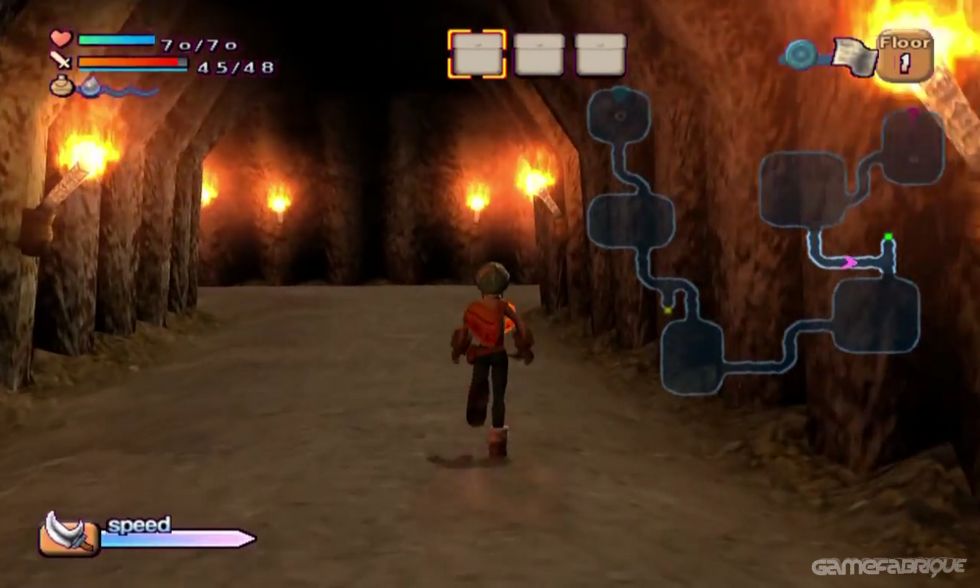It’s no secret at this point that I’m a huge RPG fan. That said, I have always found action RPGs to be hit or miss.

I find a
lot of them to be very unbalanced, filled with difficulty spikes and
generally inconsistent. So naturally, I wasn’t all that excited when
Dark Cloud was released back in 2001. There were just
too many other games out there that were more interesting and it got
fairly middling reviews, so it was easy to ignore. However, it also
garnered something of a cult following and it has been one of the
longest standing classic games available for download
on Sony’s PlayStation store. I figured now was as good a time as any
to try it.
Right off
the bat, I noticed a bevy of themes that are prevalent in modern games:
randomly generated dungeons, ‘town building and other mini-games and
an almost singular focus on item collecting and
upgrading. This stuff existed in games back then, but it wasn’t nearly
as prevalent as it is now. These elements can be fun if they are done
right and fortunately, Dark Cloud does far more right than wrong. It’s a
good, solid, surprisingly influential playthrough,
though not a classic in any sense.

I won’t
go into too much detail about the graphics, but they just scream “early
PS2 game.” It has lots of great character models, with smooth animation
and clean polygons. It also doesn’t have very
much else to look at. All the areas are wide open and lack any sort of
objects to interact with. Some of the dungeons will have a column here
and there, but its so rare you almost get excited when you see one.
Once you do rebuild the towns, the buildings
will only load when you get close. It all a function of the limited
capacity of the system and at least its not gamebreaking.
Dark
Cloud certainly wasn’t the first game to mix genres or include a town
building element. ActRaiser did it. So did Azure Dreams. But it
wasn’t quite as detailed or important to the core gameplay
as it is here. You absolutely need to build up the towns in order to
advance the story, as townspeople will give you items that are critical
in advancing your quest. I guess its not a big deal, if you were that
opposed to it you would just pick up one of
the millions of other JRPGs that are out there, but it might be
frustrating to some as the game doesn’t really tell you this or give you
any direction.
One of
the biggest reasons Dark Cloud falls flat is it lacks any sort of
meaningful reward for all of your work. Part of what makes these
dungeon crawler/rouguelike RPGs work is the continued drive to
get more, stronger, fun loot. There just isn’t enough here, not enough
big ticket weapons to search for our rare items to dig up. Unlocking
the town pieces is fun, but its a one time affair and once its done,
there is little reason to go back and explore
more. The loot in the last dungeon isn’t much better than the loot in
the first.
But at the end of the day, it boils down to one question: Is this game any good? We will get into that next week.
Comments
Post a Comment